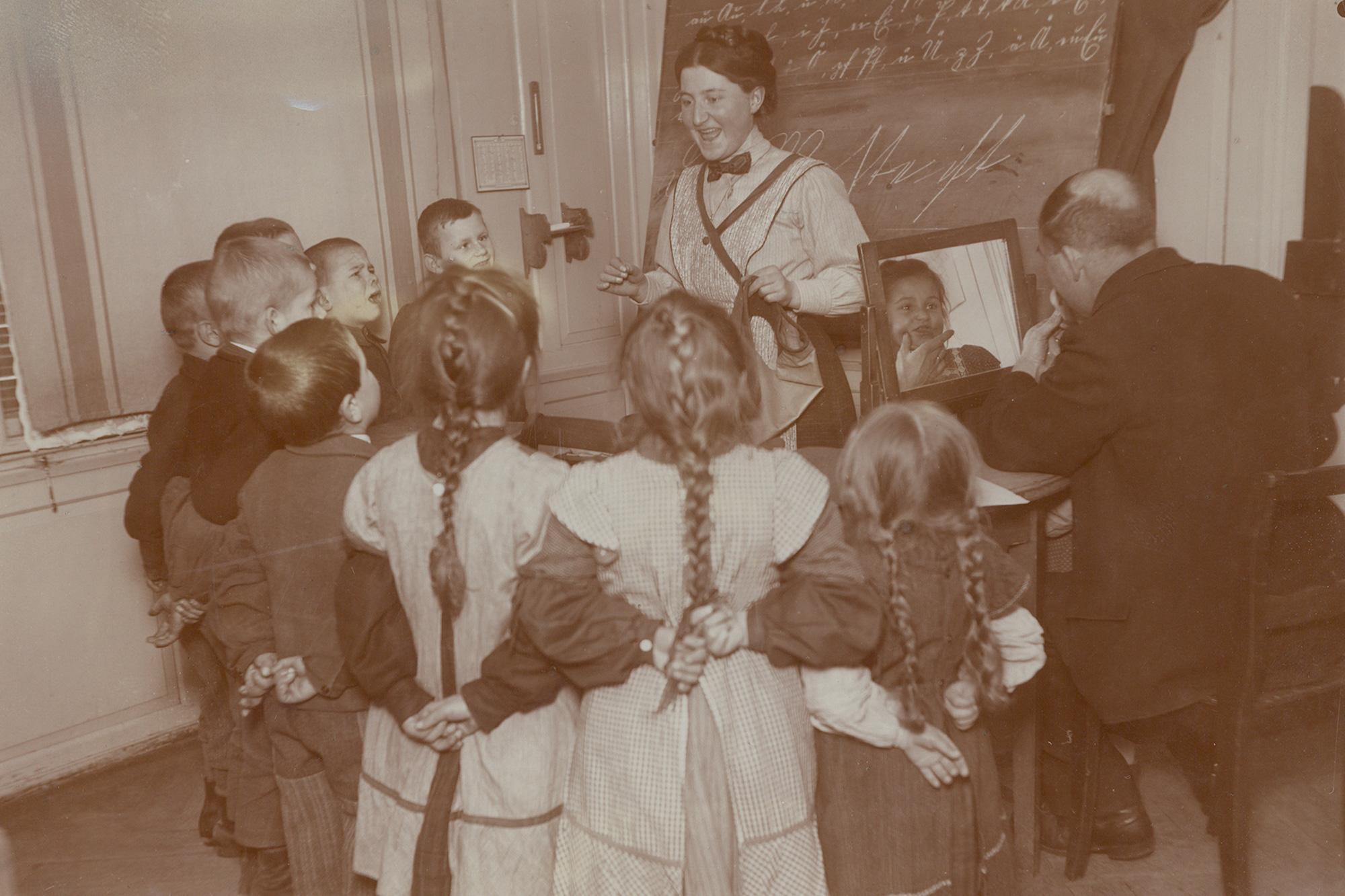Integrated or excluded? The history of deaf people

Like other minorities, deaf people have been affected by welfare policies and the expansion of the welfare state in multiple ways, some beneficent, others more harmful and coercive. Our analysis questions and nuances the equation of disability and need for services with indigence and helplessness as it long dominated welfare practices.
Project description (completed research project)
Swiss deaf history is still in its very beginnings. We know little about how deaf people were affected by welfare practices in the past, and how practices and preconceptions differed regionally. It remains unknown which welfare measures were aimed at deaf people, and what effect they had on their psyche and life trajectories. We identify these areas, compare them to practices affecting other vulnerable groups targeted by welfare practices, such as people with physical or intellectual disabilities, analyse their impact on the present, and, together with our project partner SGB-FSS, identify focus areas for action, improvement and information distribution. Here, we are sensitive to the particular linguistic diversity of spoken and signed languages in Switzerland, and to related cultural traditions since 1900.
Results
The summary of the results for this project are available here:
Original title
Deaf people within the Swiss Mixed Economy of Welfare since 1900
